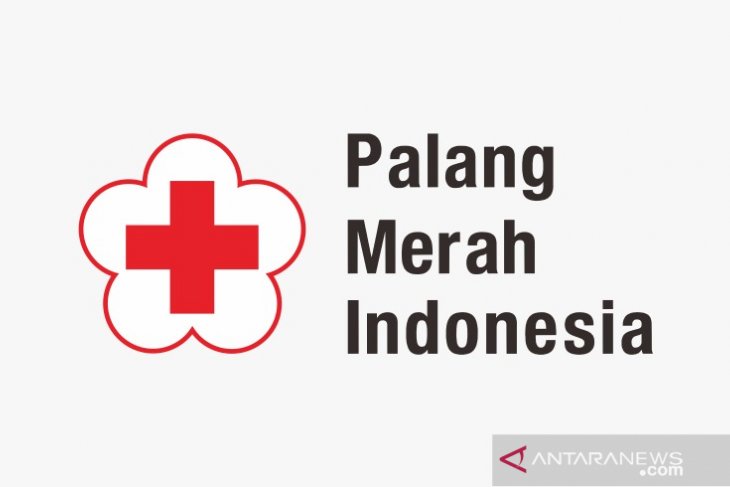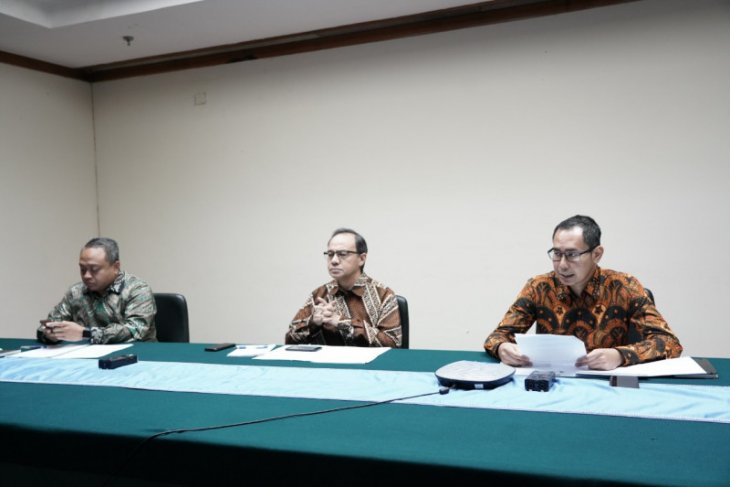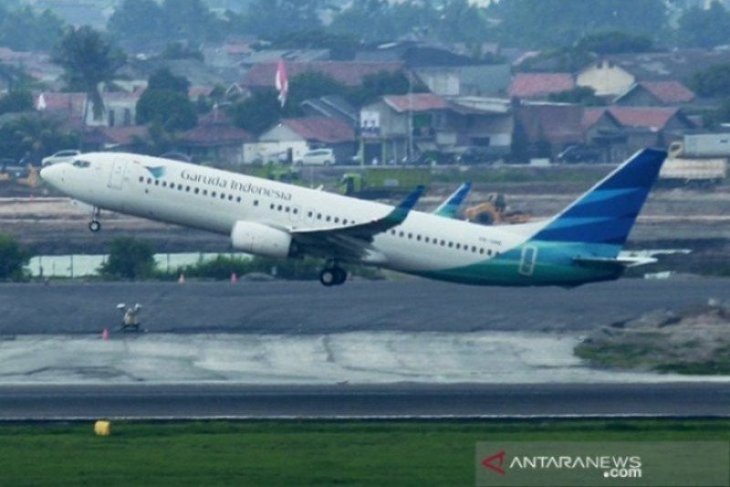Live Streaming
Program Highlight
Company Profile

Ani Hasanah
May

Former Indonesian vice president and chairman of the Indonesian Red Cross, Jusuf Kalla, said Indonesia must make a real contribution to global scientific efforts for developing effective COVID-19 treatment, and not over-rely on foreign donations.
"Indonesia must contribute to the world of science (in devising ways) for handling the new coronavirus disease," Kalla said in a press statement in Jakarta on Wednesday following a meeting with the head of the Eijkman Institute for Molecular Biology, Amin Subandrio.
Regarding the Indonesian Red Cross' (PMI's) cooperation with the Eijkman Institute for Molecular Biology, Kalla said, PMI is supporting the institute by providing access to its blood processing facilities in 15 big cities in the country.
"PMI is in a position to (provide) back-up, but the support is not in the scientific area, which is Eijkman's responsibility," the former Indonesian vice president said, adding that Eijkman is welcome to use PMI’s blood processing facilities.
Meanwhile, head of the Eijkman Institute for Molecular Biology, Amin Subandrio, said the government is preparing protocols and protection ethics for medical workers involved in the collaborative program of convalescent plasma therapy for COVID-19 patients.
"Our friends at hospitals need protection ethics and rules so that if something happens and there is a lawsuit, they would not be blamed because this (program) has been approved by the Indonesian Food and Drug Monitoring Agency (BPOM) and the ethics committee," he explained.
In short, convalescent plasma therapy-related services can start after the national protocols and protection ethics have been approved. The services would begin with the collection of data of COVID-19 survivors available at hospitals.
The data of the COVID-19 survivors would be followed up by PMI to examine their eligibility to become donors for convalescent blood plasma.
"Processes from the hospital to collecting the blood plasma will be conducted by PMI workers," he said, adding that the plasma would later be examined by Eijkman at its laboratories, which have a total capacity of processing 1,116 samples per day.
In early May, the Indonesian Red Cross for Jakarta region (PMI Jakarta) had expressed willingness to collect the blood of recovered COVID-19 patients to conduct a trial for COVID-19 treatment using convalescent blood plasma in Indonesia, as proposed by the Eijkman Institute. (ANTARA)
Ministry Appeals to Public to Spread Positive Messages about COVID-19
The Ministry of Communication and Informatics has appealed to the Indonesian public to continue spreading positive messages related to COVID-19 and remain optimistic and united in the fight against the pandemic.
"We must spread positive knowledge, and the foundation for that is we have to maintain optimism," said director general of Public Information and Communication at the Ministry of Communication and Informatics, Widodo Muktiyo, at a virtual discussion forum on Wednesday in Jakarta.
The COVID-19 pandemic, he said, needs to be tackled with positive thoughts, without pointing fingers at anyone. Self-discipline also needs to be practiced while using social media, and, at the same time, people must work together to help each other during this difficult time, he added.
"Let us set aside our ego because we are facing one common enemy which is the coronavirus. So, we should not put the blame on anybody, especially among ourselves," he urged.
Aside from spreading positive messages, the Ministry believes that it is important to build people's participation in following the protocols that have been laid down by the government.
"In this public communication, we must build orchestration, where each of us has a part, and we must be united against COVID-19,” the director-general said.
He also urged the public to follow personal protection methods, such as maintaining physical distancing, wearing masks and washing hands, as well as staying home.
"These are still being enforced and are the protocols that need to be carried out, considering there are no vaccines available (for COVID-19) yet. Otherwise, there could be a latent danger that can arise at any time," he warned. (ANTARA)
May
Indonesian Government Announces Aid for Indonesians Affected by Malaysia's MCO

The Indonesian Foreign Ministry's director for the Protection of Citizens and Legal Entities Overseas, Judha Nugraha (extreme right). (Handout Kemlu RI)
The Indonesian Government announced on Wednesday that it will provide aid to Indonesian migrant workers, including undocumented workers, who have been severely affected by the impact of Malaysia's movement control order (MCO).
The government is obliged to assist all Indonesians severely affected by the neighboring country's MCO policy irrespective of their status, the Indonesian Foreign Ministry's director for the Protection of Citizens and Legal Entities Overseas, Judha Nugraha, said.
"We have identified that undocumented Indonesian migrant workers and casual workers are most vulnerable (and would) get affected by the (further) enforcement of the MCO. Therefore, they will be the prioritized targets of our relief aid program," he declared here on Wednesday.
The Malaysian Government is planning to extend the enforcement of its movement order control until June 9, 2020, to slow the spread of the deadly coronavirus disease. The MCO was first imposed on March 18 this year.
Regarding the relief aid program for Indonesian workers in Malaysia, Nugraha said the Indonesian Embassy in Kuala Lumpur has prepared an online registration platform to enable all Indonesians there to get registered for the program.
Since the enforcement of the MCO in March, the Indonesian Embassy in Kuala Lumpur and its consulate general and consulate offices in Penang, Johor Bahru, Kota Kinabalu, Kuching, and Tawau have distributed food packages to severely-affected Indonesians.
Since the month of April, 348,843 recipients have been provided relief under the aid program in Malaysia, he added.
Coronavirus infections initially emerged in the Chinese city of Wuhan at the end of 2019. Since then, COVID-19 has spread to at least 202 countries and territories, including Malaysia and Indonesia, with a massive spurt in the death toll.
The Indonesian Government officially confirmed the country's first cases on March 2 this year. To contain the spread of the coronavirus disease, it has enforced large-scale social restrictions and distancing measures in many cities, including Jakarta, Bogor, Bekasi, Surabaya, and Makassar.
As of May 13, 2020, 108 Indonesians residing in Malaysia have tested positive for the coronavirus disease. While 27 of the total patients have made a full recovery, 79 others remain hospitalized, and two have died. (ANTARA)
The Indonesian Government announced on Wednesday that it will provide aid to Indonesian migrant workers, including undocumented workers, who have been severely affected by the impact of Malaysia's movement control order (MCO).
The government is obliged to assist all Indonesians severely affected by the neighboring country's MCO policy irrespective of their status, the Indonesian Foreign Ministry's director for the Protection of Citizens and Legal Entities Overseas, Judha Nugraha, said.
"We have identified that undocumented Indonesian migrant workers and casual workers are most vulnerable (and would) get affected by the (further) enforcement of the MCO. Therefore, they will be the prioritized targets of our relief aid program," he declared in Jakarta on Wednesday.
The Malaysian Government is planning to extend the enforcement of its movement order control until June 9, 2020 to slow the spread of the deadly coronavirus disease. The MCO was first imposed on March 18 this year.
Regarding the relief aid program for Indonesian workers in Malaysia, Nugraha said the Indonesian Embassy in Kuala Lumpur has prepared an online registration platform to enable all Indonesians there to get registered for the program.
Since the enforcement of the MCO in March, the Indonesian Embassy in Kuala Lumpur and its consulate general and consulate offices in Penang, Johor Bahru, Kota Kinabalu, Kuching, and Tawau have distributed food packages to severely-affected Indonesians.
Since the month of April, 348,843 recipients have been provided relief under the aid program in Malaysia, he added.
Coronavirus infections initially emerged in the Chinese city of Wuhan at the end of 2019. Since then, COVID-19 has spread to at least 202 countries and territories, including Malaysia and Indonesia, with a massive spurt in death toll.
The Indonesian Government officially confirmed the country's first cases on March 2 this year. To contain the spread of the coronavirus disease, it has enforced large-scale social restrictions and distancing measures in many cities, including Jakarta, Bogor, Bekasi, Surabaya, and Makassar.
As of May 13, 2020, 108 Indonesians residing in Malaysia have tested positive for the coronavirus disease. While 27 of the total patients have made a full recovery, 79 others remain hospitalized, and two have died. (ANTARA)
May

Head of Fiscal Policy Agency (BKF) of the Ministry of Finance, Febrio Nathan Kacaribu, said the government plans to roll out a stimulus for the tourism sector in the third quarter of 2020.
The stimulus would be announced if there is an economic movement, he added.
"In the third quarter, we cannot wait to walk because we are bored at home, so we will prepare a stimulus for tourism, restaurants, transportation (sectors),” he said during an online discussion on Wednesday in Jakarta.
Febrio said the previous stimulus package was issued to expand consumption among the upper-middle class and comprised discounted airplane tickets to tourist destinations and hotel or restaurant tax incentives.
"That was done to encourage consumption. Consumption in the first quarter of 2020 has been depressed," Febrio noted.
Febrio said a depressed tourism sector on account of the COVID-19 pandemic also contributed to the growth in consumption in the first quarter of 2020, pegged at just 2.8 percent, and expected to fall further in the second quarter of 2020.
"The toughest economy (was seen) in the second quarter, (when) among other things, tourism stopped, trade fell sharply, and manufacturing was disrupted, so we have to get ready. We hope that the consumption stimulus will start for the middle class, namely, (for) tourism, restaurants, and transportation,” he explained.
He further stated that the planned stimulus for tourism is expected to increase consumption among the layers of society in the middle class.
The government has allocated social assistance for the economically weaker classes of the society, he said.
“The government is considering how to expand consumption stimulus among the middle class, “ he added.
The government's planned stimulus for tourism is also part of an effort to reduce the pressure on Indonesia's economic growth, Febrio continued.
“We hope Indonesia's economic growth is not depressed deeper than 2.97 percent in the first quarter of 2020,” he said.
Meanwhile, according to data provided by the Central Java Statistics Office (BPS), the number of foreign tourists visiting Central Java Province in March 2020 fell by 46.37 percent compared to the previous month.
Just 945 foreign tourists visited Central Java in the month of March this year compared to 1,762 the previous month, Central Java BPS head Sentot Bangun Widoyono remarked earlier.
The data was recorded on the basis of foreign tourist arrivals through the province's main airports: the Ahmad Yani Airport in Semarang and the Adi Soemarmo Airport in Solo.
"This is the impact of the COVID-19 outbreak. A travel ban has been in place since February this year, thereby limiting mobility," he remarked.
Widoyono said most of the foreign tourists were Malaysian citizens.
"The number of visitors from China has declined sharply," he informed.
The decline in visitors impacted the tourism sector, in general, as the occupancy rates at star-rated hotels also dropped in Central Java.
Widoyono said the average hotel occupancy rate in Central Java in March this year plummeted to 28.63 percent from 46.36 percent the previous month. (ANTARA)


